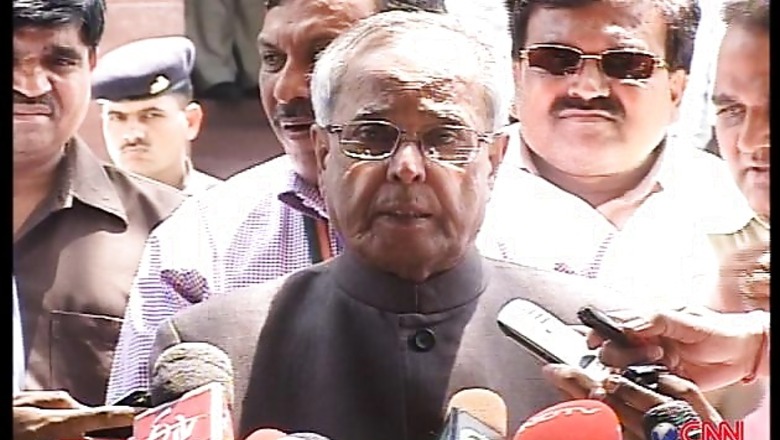
views
New Delhi: India will delay by one year until fiscal 2013/14 the introduction of measures to crack down on tax evasion, Finance Minister Pranab Mukherjee said on Monday, responding to concern among foreign investors that has led to an exodus of funds.
Pranab Mukherjee also told parliament that the burden of proving tax evasion will lie with the authorities rather than with overseas investors.
Experts' views:
Radhika Rao, Economist, Forecast PTE, Singapore, says, "These comments should provide short-term relief to the domestic markets, however, the decision to put the onus on tax authorities to prove liabilities could infuse some extent of ambiguity and subjectivity into the proposals. For now, the markets will cheer clarity on the provisions and deferment of the implementation date."
Sandip Sabharwal, CEO, Portfolio ManagemenT, says, "GAAR (General Anti-Avoidance Rules) deferral is extremely good for markets and economy as a lot of fund flows had come to a stand still because of this.
"At a time when our current account deficit is so high we can't scare away foreign capital. Now that GAAR is deferred, India will stop underperforming global peers at least."
RK Gupta, Managing Director, Taurus Mutual Fund, says, "There will be a knee-jerk reaction to the much-awaited announcement. Immediate money is unlikely to come in Indian markets because of Europe issue, which will continue for some more time. Definitely sentiment has improved, one has to wait and watch till the (finance) bill is cleared in the parliament after two days."
J Moses Harding, Head of Asset Liability Committee, Indusind Bank, says, "This is indeed good news for stocks and rupee. It is important for the government to keep off-shore investor appetite intact till structural CAD (current account deficit) issues are resolved. Given the criticality of off-shore inflows into Indian capital markets to maintain rupee stability, it is important for the government to avoid negative vibes to cause reverse flow."
Jonathan Cavenagh, FX Stragegist, Westpac, Singapore, "It's obviously a positive in the near term. We have seen portfolio outflows picking up in recent weeks, which has obviously added to downside pressure on INR. Does it change the USD/INR trend? No would be my view. Twin deficits, elevated oil prices and cooling growth momentum (against a back drop of high inflation) continue to create a poisonous environment for the currency. Oil prices moving lower is a positive but this needs to be sustained for a longer period before it turns into a positive INR development."
The rupee was trading at 53.01 to the dollar, strengthening from 53.20 before the announcement.
















Comments
0 comment